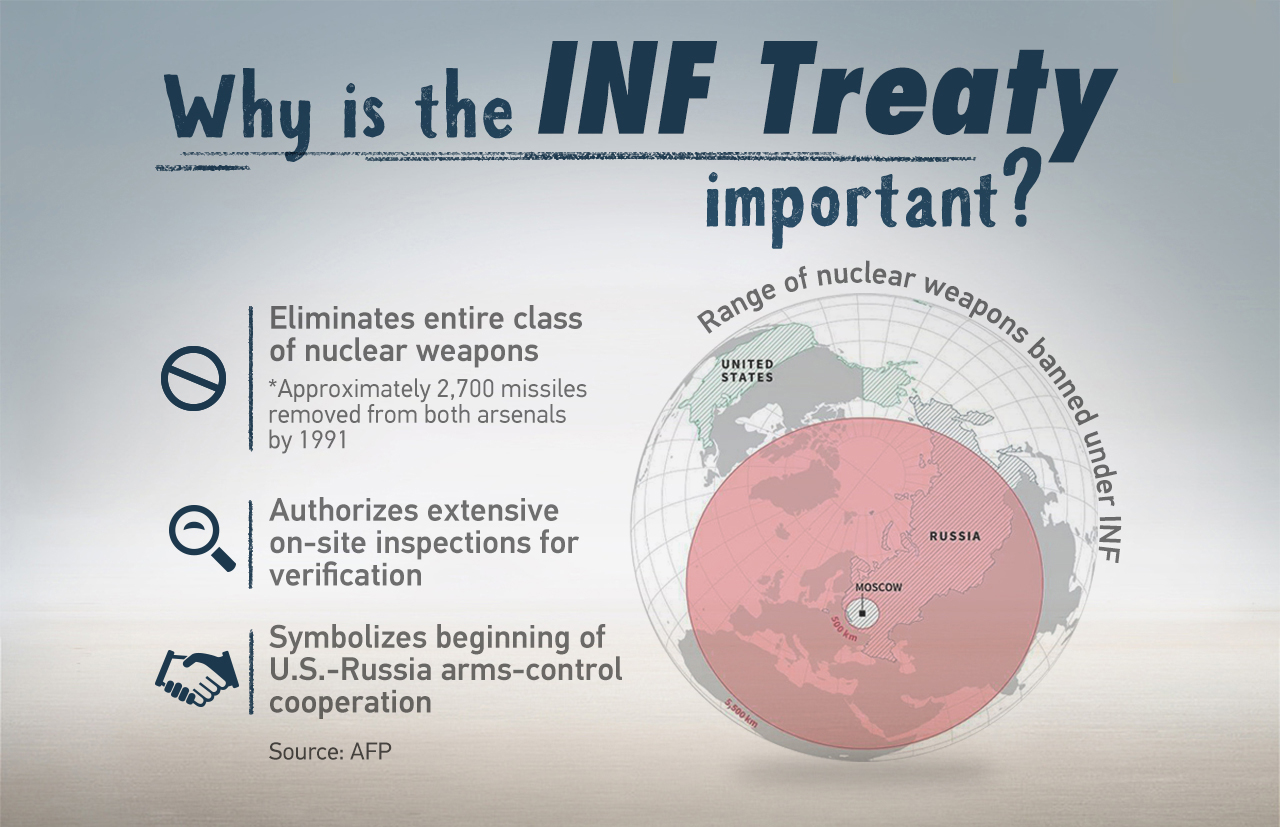Context:
Russia recently announced its withdrawal from the Intermediate-Range Nuclear Forces (INF) Treaty, a landmark arms control agreement signed in 1987 between the US and the Soviet Union. This move comes amid rising tensions between the two nations, fueled by geopolitical friction, sanctions, and nuclear posturing.
About INF Treaty:
The INF Treaty signed in 1987 by the US and the former Soviet Union—was a key arms control agreement that helped prevent the deployment of nuclear missiles with ranges between 500 and 5,500 kilometers.
· INF Treaty was a significant achievement in the Cold War-era arms control framework, aimed at reducing the risk of a fast-escalating nuclear conflict, especially in Europe.
· The treaty effectively removed missiles that could be quickly deployed and fired across short distances.
Reasons behind Russia Abandon the INF Treaty:
Russia's decision to exit the treaty is a response to the US's actions, particularly the deployment of intermediate-range missiles in Europe and Asia.
· Moscow views these deployments as a threat to its national security and argues that they undermine the spirit of mutual restraint that defined the treaty.
· Another reason is recent escalation set off by US President Donald Trump through sweeping sanctions on Russia.
· These sanctions included punitive measures targeting nations, like India and China, that continue to purchase Russian oil, as well as threats to penalize those that do not comply with US demands over the Ukraine conflict.
Which Countries Are Most Threatened?
The most immediate victims of this breakdown in the INF Treaty are NATO member states in Europe and countries in the Asia-Pacific region. Russia’s withdrawal from the treaty and its intention to redeploy intermediate-range missiles pose a direct threat to European nations, particularly those bordering Russia. The proximity of NATO allies to Russian borders, such as Estonia, Poland, and Ukraine, means they are now within range of new Russian missile deployments.
Impact on Global Security:
· The collapse of the INF Treaty signals a more dangerous and unstable world, where deterrence may be determined by the presence of missiles on hair-trigger alert rather than diplomacy.
· Experts warn that without a framework to manage military escalation, the world faces a higher risk of miscalculation and conflict.
· The lack of direct communication channels between Washington and Moscow adds to the uncertainty
Conclusion:
Russia’s departure from the INF Treaty and its renewed missile ambitions have raised concerns that the world is heading toward a new Cold War scenario. The mutual deployment of nuclear-capable assets, rising regional tensions, and the tit-for-tat imposition of sanctions suggest that the post-Cold War era of strategic cooperation may be ending.







